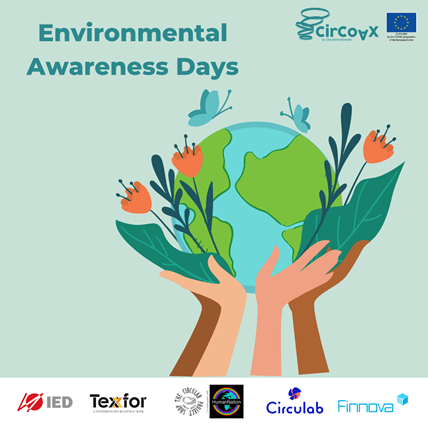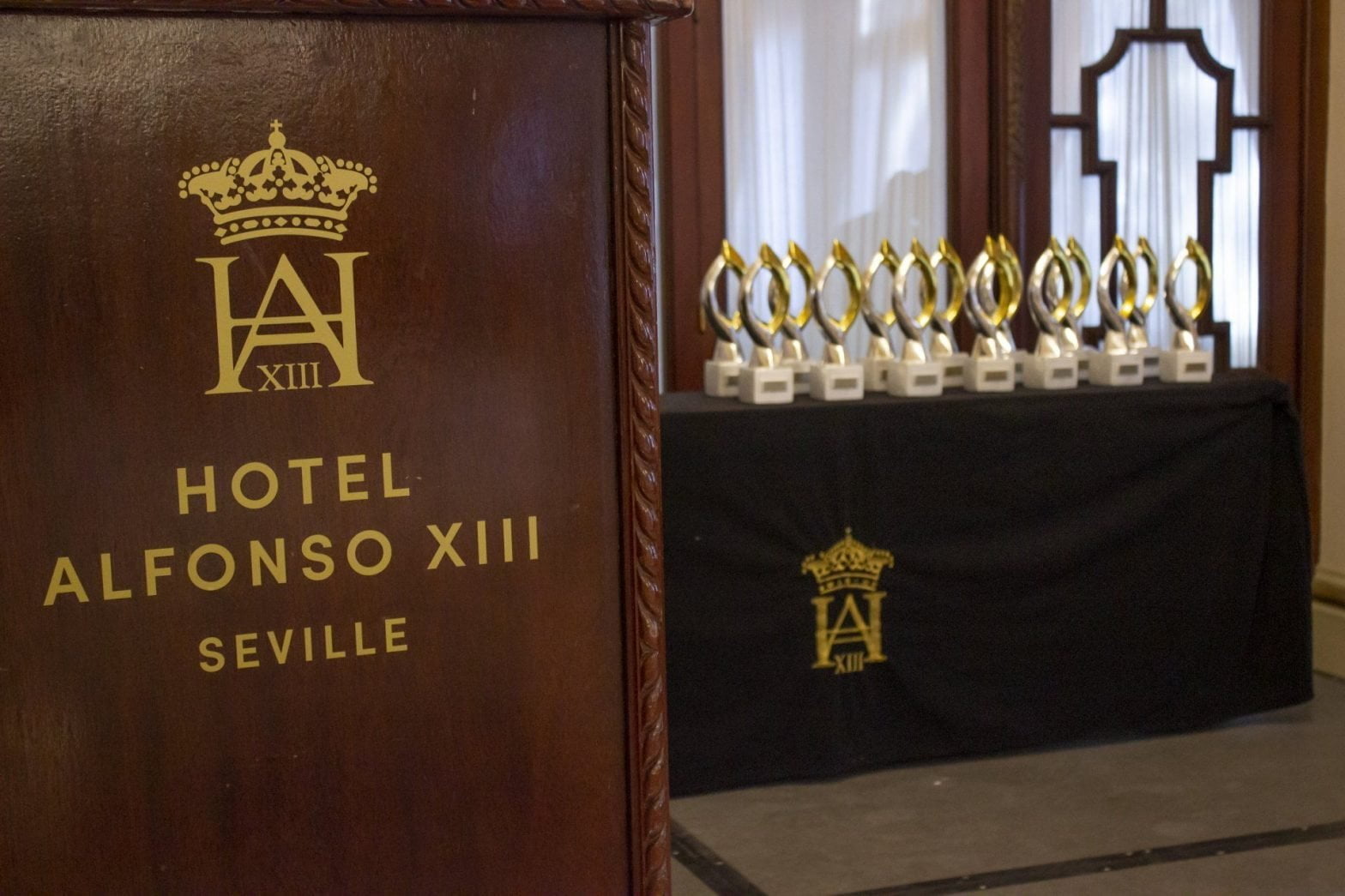This week, we celebrate three important days for the health of our planet; World Climate Day, World Water Day, and Earth Hour. In a world of growing problems we must take the initiative to improve our habits in order to keep our planet healthy and habitable for everyone. One of the most pollutive industries today is the textile and fashion industry. Here at CirCoAX we are raising awareness about the direness of the situation, and bringing attention to how the textile and fashion industry can become more sustainable.
World Water Day is a day to recognize and celebrate the importance of freshwater, and to raise awareness about the more than 2 billion people without access to safe water. The textile and clothing industry is a large contributor to water waste. The industry consumes an estimated 93 billion cubic meters of water annually, and is responsible for a fifth of freshwater pollution globally due to the chemical runoff from dyes and other manufacturing chemicals. Through mentoring, training, and funding, CirCoAx is committed to helping textile and fashion industries become more environmentally sustainable and reduce their impact on water pollution.
World Climate Day is a day to recognize and raise awareness for issues relating to the climate and world weather. The textile and fashion industry is a large contributor to factors which affect climate change, including soil degradation and carbon emissions. The cotton used to produce clothing causes topsoil erosion and land exhaustion, which leads to deforestation and large buildups of sediment that is destructive to nearby aquatic ecosystems. Additionally, textile and clothing production releases 220 million metric tons of carbon emissions annually, which are the driving factor for climate change. CirCoAx will provide the correct training and resources to help this industry adopt a circular economy model, which will reduce the destructive impact of monocultural cotton farming and lead companies to discover ways in which they can reduce their carbon emissions.
Earth Hour is a global awareness event intended to bring global attention to environmental crises such as climate change, the loss of natural resources, and biodiversity. In addition to the erosion of soil from over farming cotton, the textile and clothing industry is also responsible for the loss of biodiversity due to pollution from the use of dyes and pesticides in clothing production. Cotton farming uses 8 million tonnes of fertilizer and 200,000 tonnes of pesticides every year, and these chemicals runoff from cotton fields and pollute nearby ecosystems, leading to a significant loss of biodiversity and polluting otherwise usable natural resources. This is another example of an issue which can be mitigated by adapting a circular economy to reduce waste and production runoff, something that CirCoAx is committed to introducing to these companies in a dedicated effort to help the fight against climate change and the destruction of our natural resources.
In the last decade alone, the amount of clothes the average EU person buys has increased by 40%. In 2020, textile consumption in Europe had on average the fourth highest impact on the environment and climate change from a global life cycle perspective. The main reason for this is the reduction of price of clothing and the increase in speed that consumers receive their products due to major websites. The textile industry hits third world countries the hardest as the gathering of raw materials and the production of the clothes mostly takes place there. A shift towards EPR is an essential element in moving towards a circular economy as this would mean the producer would take on the end-of-life cost instead of the consumers. This model forces the producers to cover the cost of damage to the environment for the production of textiles in order to discourage fast-fashion.
Let us build a better world together changing the unsustainable linear economy!
About COSME
COSME is the programme for the Competitiveness of Enterprises and Small and Medium-sized Enterprises by the European Commission’s Executive Agency for Small and Medium-sized Enterprises (EASME).
This programme assists SMEs to develop their business models, to obtain funds and to internationalize. This scheme also supports public administrations to enhance the entrepreneurial environment and to facilitate the economic growth of the EU. During the funding period of 2014-2020, this programme allocated €2.3 billion to support SMEs.
About IED
Istituto Europeo di Design is an academic institution working in education, training, and the research of fashion, design, visual communication, and management. IED has offices in Spain (Madrid and Barcelona), Italy (Milan, Rome and five other cities) and Brazil (São Paulo, Rio de Janeiro). IED works in several EU and COSME countries through collaborations and arrangements with institutions, business support organizations, teachers, experts, and mentors. IED has an extensive network of connections in the fashion and textile sector (F&T).
About Finnova
Finnova is a foundation working to promote and to develop innovation and the entrepreneurial spirit across the EU. Headquartered in Brussels, it works and engages in partnerships in all EU countries. Finnova’s experience in leading communication activities and disseminating European projects is coupled with an extensive expertise in creating enterprises and entrepreneurial support programmes such as accelerators, incubators, and events.
About Texfor
Texfor is a leading textile association in Spain with roughly 400 members. Founded in 2010 and based in Catalonia, Texfor brings together enterprises from the textile value chain, i.e. from weaving to fabrics as well as accessories, textile finishing, printing, and dyeing for the dressmaking industry, textiles for households and technical and industrial applications. Texfor has extensive expertise as it has worked in relevant expert committees at an EU level: university and professional training, developing financial capacities, cross-cutting collaboration, fostering RDI, specialized services, and leadership in sustainability focused on the circular economy.
About Circulab
Circulab is a laboratory and design studio specializing in developing transformation methods, tools and programmes to help enterprises adopt circular and sustainable business models.
Circulab has designed a number of tools to implement a circular business model in enterprises. It works in 23 countries – 9 out of them in the EU – and it supports projects via 60 independent entrepreneurial consultants. It applies circular methodologies and tools.
About the Circular Project co-designed with HumanNation
TCP (The Circular Project) favours and promotes a circular and sustainable fashion in different areas, offering the fashion industry a communication strategy based on a cross-cutting and systemic approach of the circular economy. TCP combines social, ethical, environmental and economic aspects, and has a strong presence and connections in the sustainable fashion world.
TCP has promoted the Circular Sustainable Fashion Week Madrid, a one-of-a-kind event, and also serves as HQ for the Spanish Association for the Sustainability, Innovation and Circularity in the Fashion Industry. TCP is also ambassador of Sannas (Triple Bottom Line Business Association) and has collaborated in a wide array of Spanish, European, and Latin American institutions and enterprises.
The Circular Project works with Human Nation to co-design and develop CirCoAX. HumanNation is a consultancy enterprise specializing in the development of transformative and disruptive ecosystems of innovation and companies for the ‘new economy’. It is based on the fourth economic sector, the systemic thinking, and co-creation. It raises awareness in organizations and ecosystems to respect the planetary boundaries and the social fabric, creating resilient local economies with a global perspective.




